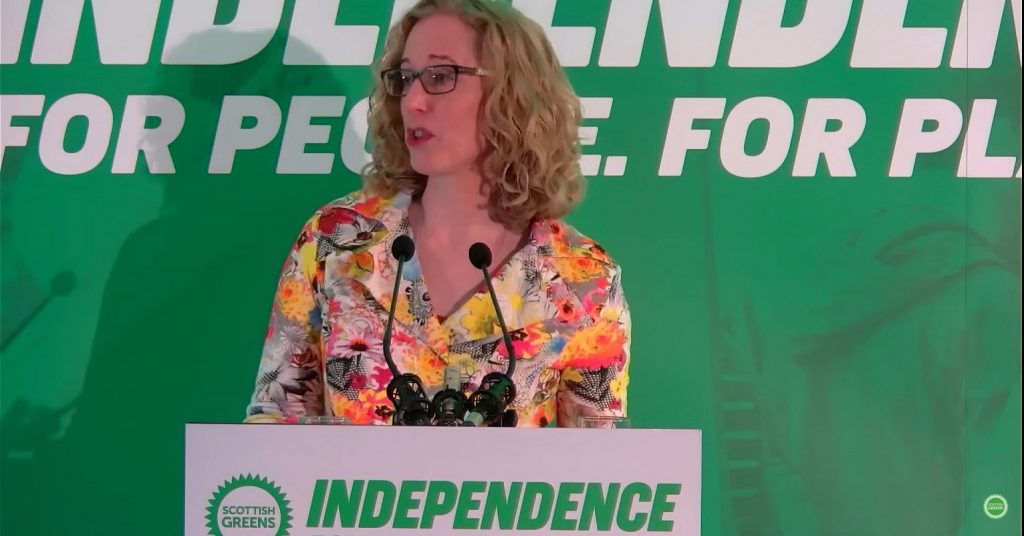Stasis at Stormont: Why Northern Ireland needs Green politics more than ever

As I write this, it is a year since the late Martin McGuinness resigned as Northern Ireland’s deputy first minister, leading to an Assembly election on 2nd March, less than ten months after the previous one. Since then, Sinn Fein and the DUP have failed to come to any agreement, despite repeated deadlines, leaving us with no Executive and no functioning Assembly. The effects of this stasis have been, for the most part, undramatic but deeply damaging. Every aspect of our communal life has been degraded, overtly or insidiously, and both hope and energy are lower than I have known them in my twelve years of living here. There is a strong temptation for individuals to withdraw, to retreat from engagement into private space, to give up on the experiment of devolution, nailing down the hatches and allowing ourselves to be buffeted by the tempests of global change.
But as Green thinkers and activists we have no such comfortable options. Our four key principles, of social justice, environmental sustainability, grassroots democracy and nonviolence, are the interlocking foundations of a society which works for the common good. And a society which doesn’t work for the common good ultimately doesn’t work for anyone. Our principles are vital when they are universally agreed and applied, but much more so when they are under threat. Our responsibility is to look squarely at our situation, to recognise the ways in which it is causing suffering, to speak boldly about what we see and to find ways, even in the margins, to work together for a better future.
Social justice for the people of Northern Ireland is facing a perfect storm, built up of the ‘welfare reform’ from which we have been largely shielded in the past, budget constraints which have been catastrophic for the voluntary sector and a series of chaotic cuts and consultations about cuts to health, education and social care which have left us firefighting one threat while a dozen more lurk in the shadows. And meanwhile we remain shamefully regressive, with many of our rights, notably on equal marriage and reproductive healthcare, lagging behind our neighbours’.
Environmental sustainability has never been taken very seriously by the political establishment here, despite, or perhaps because of the incredible biodiversity and richness of landscape and habitat of which we are custodians. Our success as a frack-free movement required us to stimulate a huge swing in public opinion before the mainstream parties began, reluctantly, to follow their voters. On the whole, they still don’t get it, and our record for enforcement of planning and environmental law is woeful. Unfortunately it appears that the decision-making civil servants get it even less, and the absence of ministerial responsibility and Assembly scrutiny has led to a series of appalling announcements, from the refusal to stop illegal sand dredging in Lough Neagh to new mineral prospecting licences planned for Fermanagh and Tyrone.
We have a democratic deficit at every level. Following last year’s general election (which of course did nothing to help the Stormont talks) there is now only one MP for Northern Ireland who is not either a Sinn Fein abstentionist or a DUP de facto Tory. MLAs from those two parties are keeping their heads down, while the others seethe with frustration outside the closed doors of the talks. For from within those doors nothing has emerged, not so even so much as a list of agreed and outstanding issues; not even the frostiest of joint press conferences. It makes the EU/UK Brexit talks look like a festival of transparency. It is not even as though we have an effective and co-operative local government sector to take up the challenge. Individual councillors do what they can, but the recent reorganisation is still bedding in, NI councils have far fewer powers than their GB equivalents, and there is a perpetual temptation to use the council chamber as a proxy battleground for Stormont skirmishes. We don’t even have parish councils.
Finally, and in many ways most importantly, nonviolence. While the peace still holds, there has been a hardening and coarsening of attitudes and language that makes expressions of sectarian hostility more acceptable, along with a rise in antisocial behaviour. Northern Ireland is not, of course, alone in this; the effects of the Brexit vote, Trump’s victory and the rise of the far right all feed into prejudice and rancour. But our particular history, and our finely-balanced demographics, make us especially vulnerable. With an electoral system in which the two largest parties are never competing for the same votes, but both benefit from the demonisation of the other, there is no incentive to co-operate openly. Neither party, it seems, has a real vision for the present Northern Ireland, with one hankering back to a largely illusory socially conservative ‘Britain’ while the other dreams, equally implausibly, of an ill-defined all-Ireland utopia. For both, there are visible advantages in direct rule, especially with the chaos of Brexit on the near horizon.
For those of us in other parties, in civic society, as workers, activists, citizens and families, there are no easy answers, no one big solution. In the Green Party we have been open to assisting the talks process in any way that we can; making positive suggestions for the appointment of an independent facilitating chair and for a Citizens’ Assembly. We have continued to strive at grassroots level for the human rights that have been stalled by the Stormont stasis. We have played central roles in local campaigns, fundamentally important not only for the public services and environmental integrity which they work to protect, but also in keeping citizen engagement and cross-community cooperation as realities in our lives. If these are forgotten, allowed to become nostalgic memories, then we are really in trouble. We are offering an alternative, a way of doing politics that is not mere aspiration but that has been proved, across the globe, to make people’s lives better, both now and for their children’s future. And, most of all, we are offering hope.




Leave a Reply